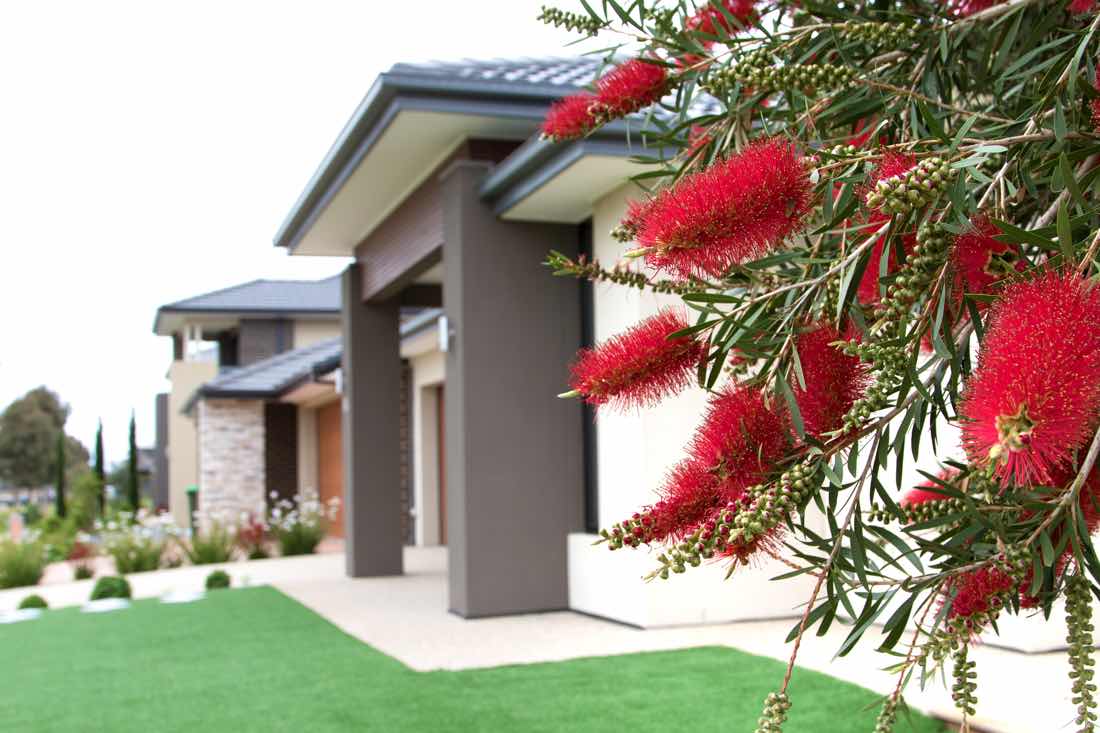Thinking of getting into property investment in Australia and want to understand how to manage tax on Australian property?
Whether you’ve moved abroad permanently or you’re temporarily working in a different country for a few years, specific rules apply if you happen to be an Australian landlord. While there are a couple more complexities than a domestic landlord for the ownership, management, and tax on Australian property, we’ve got you covered.
While many Aussie expats may choose to rent out their family home, there’s a bit of a difference between keeping a single property occupied and splashing out on multiple rental properties. If you like the idea of getting in on a landlord gig, it’s important to understand exactly what tax you’ll need to pay, when you pay it, and how it all works.
Read on for our complete guide to managing finances as an expat Australian landlord:
What does it mean to be an expat landlord in Australia?
If you own property in Australia that you rent out, but you don’t usually live in the country, you might just be considered an expat landlord. Expat landlords are increasingly common worldwide, whether it’s individuals renting out family homes or property investors looking to expand their reach. Cities and holiday hotspots are popular rental choices for many expat landlords, bringing in the cash while working or living abroad.
Purchasing rental properties in Australia as an expat
So, you’ve decided you want to push the boat out and become an expat landlord. There are a few steps required in the process. Even if you’ve rented out your own resident family home in the past, moving into a more formal landlord role has its own regulations and requirements. Here’s what you should consider before leaping on in:
Understanding the costs and fees
As an expat landlord, you’ll need to pay certain taxes to the ATO for the net income that you earn from your rental properties – to learn more take a look at the ATO’s Rental Property Guide as that provides a good explanation of what’s involved. Regarding the taxes relating to your rental properties, those may vary depending on whether you’re an Australian or foreign resident, which we’ve covered in detail below. You’ll also be responsible for maintenance, repairs, and other ongoing costs, especially if you don’t have a tenant at any point.
Using local services to purchase the right property
If you’re purchasing a property from abroad, you don’t get the chance to scope it out and examine the area and value for money yourself. Having a local property investment service can help you buy the right property and not end up with a dud. An investment company will also understand the ins and outs of your requirements as an expat.
Access to financial services
If you live in Australia, getting a property investment loan can be relatively easy. Many banks will be wary about lending you money on the same terms as expats. As a relative unknown, you’ll be considered a ‘non-standard’ borrower. What does that mean? Often, it means higher deposits and fewer options are available to you. Working with a specialised mortgage broker and an experienced expat accountant can help the whole process go much more smoothly.
What are the financial obligations of an Aussie expat landlord?
Once you’ve purchased one property or invested in a dozen, you’ll then be required to meet certain financial obligations as an Aussie expat landlord. These include:
Running and maintenance costs
Much like any other landlord, you’ll need to cover the running costs of your business. In property rentals, this means maintenance, repair and all other services surrounding property ownership.
Yearly submission of tax returns
As an Australian expat, it’s also your responsibility to file a yearly Australian tax return before the end of each financial year on the 30th of June. We’ve covered the taxes you’ll have to pay in more detail below, but ensuring your taxes are filed on time and accurately is your top priority. An expat accountant can help with that.
The taxes you’ll need to pay as an expat landlord
First thing’s first, the amount of tax you’ll need to pay as an expat landlord depends on which of these two categories you fall into:
- Australian tax residents, or
- non-residents for Australian tax purposes.
More on that below, so read on to find out more.
There are also two specific Australian taxes you’ll need to pay as an expat. These are:
Rental income tax
Rental Property Guide is part of our yearly Australian tax return that you’ll need to submit to the ATO. It refers to any income you receive from the rental of properties. This specification isn’t just for long-term rentals. It includes short term holiday rentals and house shares, too.
To file your rental income tax return, you’ll need to have plenty of clear information on all the rental income you’ve received over the year. Income related to renting, such as insurance and bond money, should also be included if it’s received within that tax year. Once you’ve gathered all this information, you’ll then need to calculate your expenses.
Expenses need to be properly handled to ensure they are accurate for the ATO. You can only claim for eligible expenses on your rental property when the property was rented out. Apportionment is also a consideration. For example, if you used the property yourself for several months, you cannot claim repairs or maintenance during that time.
Finally, timing is also a consideration, with certain expenses able to be claimed for in part over multiple years. With so much to consider, it’s no wonder most expats leave their taxes in the hands of the experts.
Capital gains tax
Capital gains tax refers specifically to the sale of your rental property to someone else. As your non-primary residence, you’ll need to pay capital gains tax if you owned the house, flat or building for more than 12 months before sale. Typically, capital gains tax is 50% of the profit made on the sale of the property.
Land Tax
Aussie expats need to also be aware State and Territory land taxes. Lodging your Australian income tax return with the Federal Government isn’t the end of your tax or of your sadly. If the value of your property exceeds certain state based land-tax thresholds, then land tax may also apply, payable to the State government where your property is located.
Although beyond the scope of this article (as the topic is too large to consider fully here), we’ve walked Australian and foreign expats through the basics of State land taxes, by giving a state-by-state analysis of the various tax regimes in the following article below – take a look at that to learn more about the state based taxes that may also apply to your property:
Australian State Taxes – the State (and Territories) of the Nation
What are the key differences between Australian resident taxes and foreign resident taxes?
If you reside in Australia for other tax purposes, you may need to pay less tax on Australian rental income than you would as a foreign resident. This is because Australian resident taxpayers receive a fixed tax-free income, which reduces what they owe in taxes overall.
If you are considered a foreign resident, you don’t get the benefit of that reduction in taxes. That means you’re eligible to pay tax on the entirety of your net income from rental income in Australia. While this sounds relatively simple, there is also the tax requirements of your current country of residence to consider.
It’s also worth noting that taxes aren’t uniform worldwide. If you have Australian properties and reside in Canada for example, your tax requirements may differ from those in say, China or Jamaica etc. Australia has tax treaties with over 40 jurisdictions, making it important to properly file taxes in both countries based on those individual treaties.
Do I need to pay taxes on other rental properties around the world?
If you’re an Australian resident, you’ll be required to pay taxes on any form of income you make. Wherever your rental property happens to be, from sunny climes to snowy paradise, you’ll need to declare all income you’ve made, minus any expenses or costs. Yes, every single cent! You’ll then be taxed according to this collective income, as well as adhering to the tax rules in the country where your rental properties are.
Will I be taxed on all of my rental income?
Yes and no. While you’ll be taxed on your net rental income, this is reduced by any expenses and costs you’ve had to pay out. To reach this figure, you’ll need to accurately calculate your total expenses for all rental properties individually against the rental income they bring in.
If you have multiple properties in Australia, working with a qualified accountant can ensure everything is completed on time and accurately. With Australia holding different tax treaties with foreign countries, it’s vital to seek expert advice if you’re unsure how best to manage your finances.
Are there any risks to investing in property as an expat?
If you understand the finances behind property investment and Australian tax (or hire an expert), there are very few unexpected risks of property investment in Australia. One of the most significant problems you may face as a non-resident is not viewing properties before purchase or relying on a letting agent or manager to keep on top of repairs and maintenance.
If you’re planning to reside in Australia in the future, or you’re currently a landlord with plans to become an expat, the best thing you can do is to do your research. The more informed you are, the better chance your tax returns, accounting, and day-to-day property management will go smoothly.
Managing your Australian properties
If you live abroad, you may also be wondering how to manage your rental properties’ finances and day-to-day running. Here are a couple of things you can do:
Utilising a local letting agent or property manager
A local letting agency or property manager can handle your properties’ general maintenance and control while you’re out of the country. They may even be able to handle the rental process for you, reducing the need for your direct input on individual property finances.
Hiring qualified, experienced and trained Australian expatriate tax accountants
Perhaps one of the best things that you can do as an Australian expat landlord, is to work with professional accountants who are very experienced in dealing with taxes for Australian and foreign expats. Unlike Australian resident landlords, the taxes, processes, and financial aspects of renting out a property as an expat can be confusing. With the support of a skilled Chartered Accountant, you won’t need to worry about the little details.
Our team at Expat Taxes have extensive experience in handling tax returns and providing financial advice. We’re Australian expats ourselves, and so we have a vested interest in understanding your needs, your requirements and all the relevant tax issues inside and out.
If you’re after a team that always goes the extra mile for you, we’re right here. Get in touch with us today to find out how we can help you manage your taxes as an expat with a rental property.
- Potential AUD Exchange Rate Impacts Of Inflation & Interest Rates - 30/10/2024
- Overdue Tax Returns? Here’s How to Catch Up - 15/09/2024
- Demystifying PFICs for Australians in the United States - 12/04/2024



